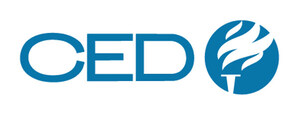CED Calls on Policymakers and Business Leaders to Ensure Safe, Accessible, Credible Elections
News provided by
Committee for Economic Development of The Conference Board (CED)Sep 30, 2020, 11:21 ET
WASHINGTON, Sept. 30, 2020 /PRNewswire/ -- Today the Committee for Economic Development of The Conference Board (CED) released its latest solutions brief, which analyzes the significant changes to in-person voting that COVID-19 requires, including the need for "no-excuse" absentee voting. 2020 Election: Achieving a Safe, Accessible, and Credible Election During COVID-19 also addresses the issue of fraud and underscores that ensuring a credible election is a shared, bipartisan responsibility. The solutions brief outlines specific steps election officials and business leaders alike can take to ensure the safety, fairness, and integrity of US elections.
"Conducting elections during this crisis involves two distinct challenges: redesigning procedures to make voting safe during a pandemic, and ensuring that Americans believe the election was conducted fairly and accurately, reflecting the will of the voters," said Lori Esposito Murray, President of CED. "Both election officials and business leaders have important roles to play in achieving those goals."
The new brief calls on election officials to:
- Choose appropriate voting sites that have adequate spacing and ventilation to ensure safe in-person voting. Some polling locations used in the past will not be safe for use during a pandemic. Election officials should seek sites that are large enough to accommodate both an easy flow of people and air, while also meeting preexisting accessibility needs and ensuring that changing polling locations does not disadvantage some communities of voters.
- Provide appropriate staffing, equipment, and training. Even in normal years, recruiting a sufficient number of poll workers (who are typically elderly) is difficult; doing so during a pandemic will require a large and coordinated effort. There will also need to be clear efforts to ensure poll workers' safety, including ensuring that they have an adequate supply of personal protective equipment (PPE).
- Offer at least 10 days of early voting, including some weekend and evening hours, to spread out voter traffic. Expanding the range of voting days will reduce crowding at popular times on Election Day, particularly benefiting voters with work or caregiving responsibilities that constrain flexible scheduling. It also allows early detection and correction of registration errors or other problems before the rush of Election Day.
- Offer "no-excuse" absentee voting for all, supported by procedures designed to ensure its integrity and success, such as voters being able to register and request absentee ballots without in-person visits to election offices or notaries, including efforts to provide postage-paid applications for absentee ballots to all registered voters. States should also enable early processing or counting of ballots received prior to Election Day, provide video-monitored absentee-ballot drop boxes with tight chain-of-custody procedures, and design absentee ballots to minimize errors such as missing or misplaced signatures.
The brief also outlines actions business leaders can take to assist in the election effort – and in doing so protect their employees, customers, and communities. They include:
- Communicating new voting rules, options, and procedures to employees and customers, including providing reminders to employees about voting early. Business leaders are often trusted voices in their communities and can play an important civic role as a source of reliable, nonpartisan information.
- Directly aiding election officials by donating needed infrastructure, technological assistance, supplies, and services. The changing physical requirements in polling places will likely drive new or increased demand for items such as PPE, Plexiglass dividers, and printing services – making the help of willing businesses potentially critical.
- Making it easier or more affordable for employees to serve as poll workers. Companies can offer a full day of paid leave for employees who will work at polls or, for companies which cannot afford that, unpaid leave.
- Providing paid leave to facilitate safe voting by reducing crowds at the polls. This should include voting earlier than Election Day and should cover travel to and from secure drop boxes, election offices, or other locations where absentee ballots can be submitted.
About CED
The Committee for Economic Development is the Public Policy Center of The Conference Board that delivers well- researched analysis, and non-partisan, reasoned solutions in the nation's interest. www.ced.org
About The Conference Board
The Conference Board is the member-driven think tank that delivers trusted insights for what's ahead. Founded in 1916, we are a non-partisan, not-for-profit entity holding 501 (c) (3) tax-exempt status in the United States. www.conference-board.org
SOURCE Committee for Economic Development of The Conference Board (CED)

Related Links
http://www.conference-board.org
WANT YOUR COMPANY'S NEWS FEATURED ON PRNEWSWIRE.COM?
Newsrooms &
Influencers
Digital Media
Outlets
Journalists
Opted In





Share this article